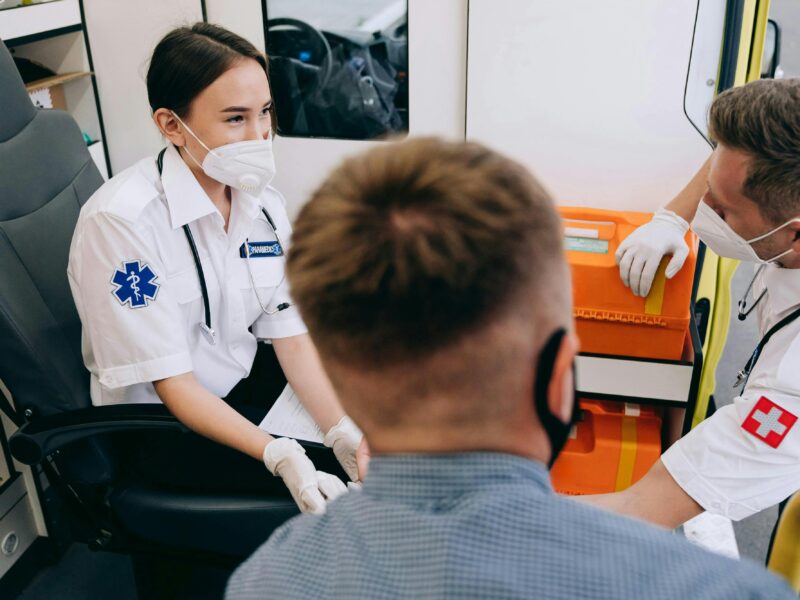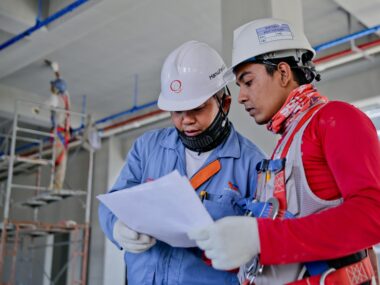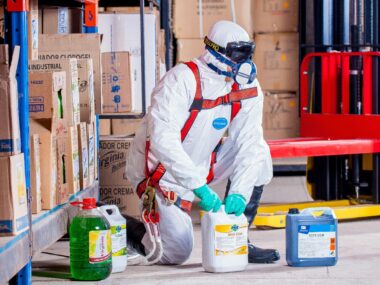Registered Nurse in Australia with Visa Sponsorship
Registered Nurse in Australia with Visa Sponsorship! Australia is battling a critical nursing shortage. The pandemic exposed the cracks in the healthcare system, and with thousands of nurses retiring, international recruitment has become essential. The Australian government is investing heavily in healthcare infrastructure, regional hospital upgrades, and aged care—meaning the demand for nurses will continue to rise through 2030.
A report by Health Workforce Australia projects a shortfall of over 100,000 nurses by 2025, making this an ideal time for foreign-trained nurses to move and work in Australia.
Benefits of Working as a Registered Nurse in Australia
Working in Australia as a nurse brings both professional and personal rewards:
-
Permanent Residency Options through sponsored visas
-
Attractive Salary Packages with additional shift allowances
-
High Quality of Life in one of the world’s safest countries
-
Family Inclusion in most sponsored visas
-
Access to Free Healthcare under the Medicare system (for PR holders)
3. In-Demand Nursing Specialties
Not all nursing roles have equal demand. Some specialties are more urgently needed, especially in rural and regional Australia. These include:
-
Registered Nurse – Aged Care
-
Registered Nurse – Mental Health
-
Registered Nurse – Emergency and ICU
-
Registered Nurse – Operating Theatre
-
Registered Nurse – Pediatrics and Neonatal
-
Registered Nurse – Community and Rehabilitation Nursing
These roles are consistently listed on both the Medium and Long-term Strategic Skills List (MLTSSL) and State Skilled Occupation Lists.
4. Eligibility Criteria for Registered Nurse in Australia
To qualify for nursing jobs in Australia with visa sponsorship, you must:
-
Hold a recognized Bachelor’s Degree in Nursing
-
Have a valid RN license in your home country
-
Demonstrate English language proficiency
-
Obtain AHPRA registration
-
Complete the ANMAC skills assessment
-
Have relevant work experience (usually 2–3 years minimum)
5. English Language Requirements
Australia has strict language standards for nurses to ensure patient safety.
Acceptable tests include:
-
IELTS Academic – 7.0 in all four bands
-
OET – Grade B in each band
-
PTE Academic – 65 in all sections
-
TOEFL iBT – 94 overall with 24 writing, 20 reading, 20 listening, 23 speaking
6. Nursing Registration Process with AHPRA
The Australian Health Practitioner Regulation Agency (AHPRA) oversees nurse registration. Here’s the process:
-
Create an online account on the AHPRA website
-
Submit proof of qualifications, identity, and English scores
-
Undergo the Outcome-Based Assessment (OBA) if your degree is not recognized as substantially equivalent
-
Receive your registration approval (can take 4–6 months)
7. Skills Assessment by ANMAC
The Australian Nursing & Midwifery Accreditation Council (ANMAC) is a requirement for visa applications under the skilled migration program.
Documents required:
-
Passport
-
Qualification transcripts
-
Employment references
-
Evidence of registration/licensing in your country
-
Proof of English proficiency
-
CV
ANMAC will provide a positive skills assessment which is valid for two years.
8. Visa Options for Registered Nurses in Australia
Australia offers various visas to help registered nurses move with employer sponsorship or through skilled migration.
TSS Visa (Subclass 482)
-
Temporary work visa (up to 4 years)
-
Requires job offer and sponsorship
-
Provides pathway to PR after 2–3 years
Employer Nomination Scheme (ENS) Visa (Subclass 186)
-
Permanent residency visa
-
Two streams: Direct Entry & Transition
-
Must be nominated by an employer
Skilled Nominated Visa (Subclass 190)
-
PR visa via state nomination
-
Points-tested
-
Must reside in sponsoring state
Skilled Independent Visa (Subclass 189)
-
No sponsor needed
-
Points-based invitation system
-
Ideal for experienced nurses with high scores
Regional Skilled Visa (Subclass 491 & 191)
-
For work in regional or remote areas
-
Offers PR after 3 years under 191 visa
9. Step-by-Step Guide to Applying for Sponsored Nursing Jobs
-
Assess Eligibility: Confirm AHPRA and visa criteria
-
Pass English Test: IELTS, OET, or PTE
-
Apply for AHPRA Registration
-
Get Skills Assessed by ANMAC
-
Search for Sponsoring Employers
-
Apply for Jobs via Portals or Agencies
-
Receive Job Offer & Sponsorship Nomination
-
Apply for the Relevant Visa
-
Move to Australia & Start Work
Top Hospitals Hiring Registered Nurse in Australia with Visa Sponsorship 2025
| Employer | Locations | Known for |
|---|---|---|
| Ramsay Health Care | Nationwide | Private hospitals |
| Healthscope | VIC, NSW, QLD | Surgical, rehab, psych care |
| Bupa Aged Care | All states | Aged care facilities |
| NSW Health & QLD Health | Public sector | Critical care & mental health |
| Anglicare & Uniting Care | Regional areas | Palliative and community care |
| St John of God Health Care | WA, VIC | Maternity and general nursing |
| Silver Chain Group | WA, SA, NSW | Home and palliative nursing |
11. Salary Expectations for Registered Nurse in Australia
Salaries for registered nurses vary based on state, shift type, and seniority.
| Role Type | Average Salary (AUD/year) |
|---|---|
| Graduate Nurse | $65,000 – $75,000 |
| Experienced RN (3–5 yrs) | $80,000 – $90,000 |
| Senior RN / Nurse Manager | $95,000 – $115,000+ |
| Rural or Night Shift Bonus | +$5,000 – $15,000 |
In regional areas, some employers offer housing allowances and relocation bonuses.
Working Conditions and Employee Benefits
-
38-hour workweek
-
Shift allowances (15%–25% extra)
-
Paid overtime
-
4 weeks annual leave
-
10 days personal/carer’s leave
-
Superannuation contributions (11%)
-
Sick leave and maternity benefits
13. PR Pathways for Sponsored Nurses
Working as a sponsored nurse is one of the easiest ways to gain permanent residency:
-
TSS to 186 Visa Transition Stream: After 2–3 years with the same employer
-
State Nomination (190): Faster PR if you accept a job in a sponsoring state
-
491 Regional Work Visa: 3 years of regional work leads to 191 PR visa
Once a PR holder, you and your family get access to:
-
Medicare
-
Public education
-
Citizenship pathway after 4 years
Challenges on Registered Nurse in Australia with Visa Sponsorship
| Challenge | Solution |
|---|---|
| AHPRA registration delays | Apply early; submit complete documentation |
| Cultural adjustment | Attend orientation programs and support groups |
| Visa processing uncertainty | Work with a registered migration agent |
| Lack of Australian experience | Start in rural areas or aged care |
FAQ– Registered Nurse in Australia with Visa Sponsorship
What qualifications do I need to be a nurse in Australia?
A recognized Bachelor of Nursing and current nursing license from your home country are required, along with English proficiency and AHPRA registration.
Can I bring my family with me?
Yes. Most employer-sponsored visas (like Subclass 482) allow for partner and child inclusion.
Are regional jobs easier to get sponsored for?
Yes. Rural and remote employers often face greater shortages and are more open to sponsoring overseas nurses.
Can I change employers while on a 482 visa?
Only if your new employer is an approved sponsor and lodges a new nomination.
Final Thoughts on Registered Nurse in Australia
Australia is one of the most welcoming countries for foreign healthcare professionals. Becoming a Registered Nurse in Australia with visa sponsorship is a rewarding journey that offers excellent career progression, a high standard of living, and a reliable pathway to permanent residency.
With well-paying jobs across the country and a solid migration system supporting skilled workers, now is the perfect time to start your nursing journey in Australia.
- Visa Sponsorship Jobs in Canada 2025
- Post Study Work Visa Jobs UK
- Jobs in USA with Visa Sponsorship for foreigners
- Visa Sponsorship Jobs in New Zealand 2025
- Electrician Jobs in Sweden with Visa Sponsorship






